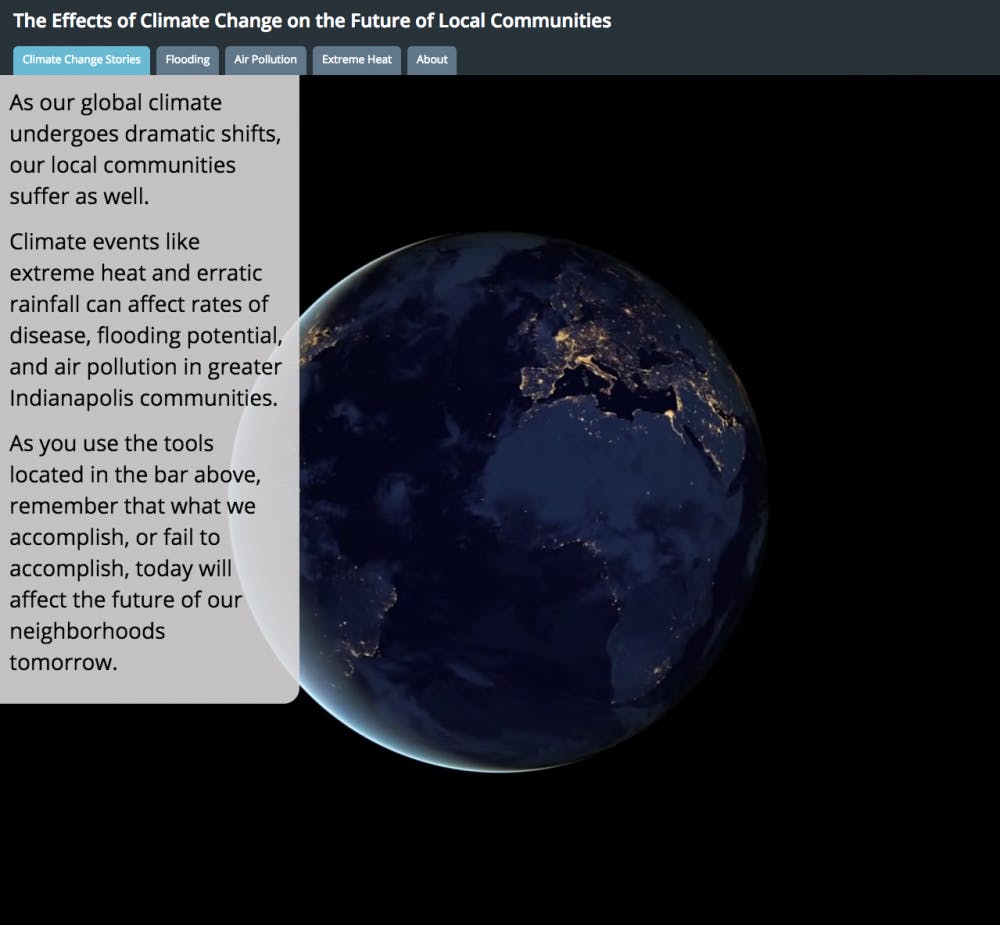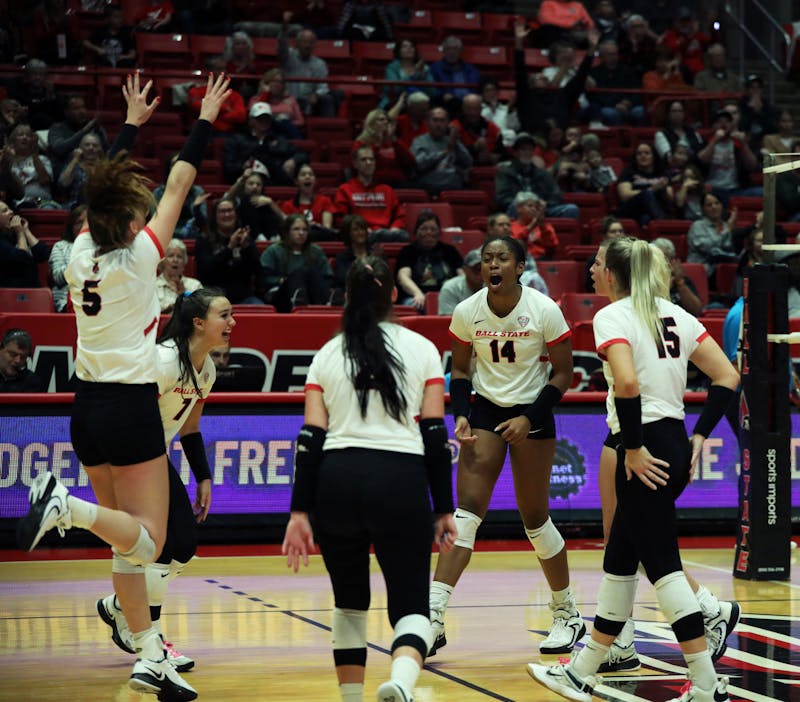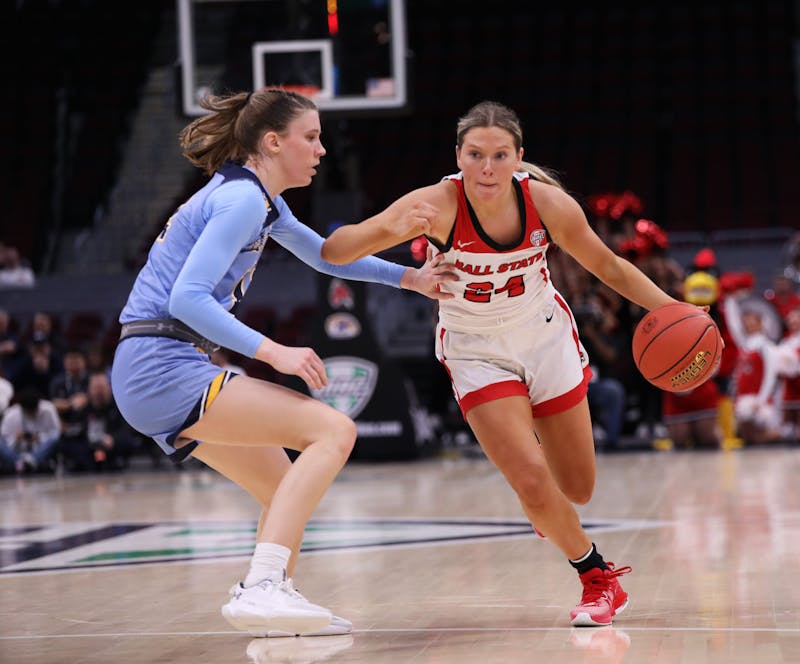An interactive website showing how climate change may impact Indianapolis could change how some people look at it.
Indiana University-Purdue University Indianapolis won a national competition for the website, and it was awarded first place prize by The National Institute of Environmental Health Sciences.
Although the site is currently a prototype, it displays Indianapolis’ Near Westside community and will be featured in the U.S. Climate Resilience Toolkit. The toolkit, created by the White House, provides scientific tools, information and expertise to help communities manage climate-related risks and improve resilience to extreme events.
Robert Koester, chair of the council on the environment at Ball State, said projects like these will help convince Indiana residents to focus more on climate change and how it can affect people in the future.
“Unless we make changes in current operations and practices, things will only get worse,” Koester said.
When users navigate the website, they have multiple options to see what the effects of climate change have on the future of local communities.
Users can choose among the following to see the future outcomes of environmental hazards:
- Flooding: The effect of increased precipitation on vulnerable and hazardous areas
- Air pollution: The effect of temperature on ozone formation
- Extreme heat: The effect of urban heat on cardiovascular health
In a telephone survey of more than 900 randomly selected Americans, 65 percent of people who believe in climate chance said they were “very confident” in their position, according to thinkprogress.org.
Many people are beginning to agree that global warming is becoming a major issue, but are unsure on how to prevent it from continuously getting worse or how to put an end to the increasing temperatures and hazardous environmental changes.
The biggest cause of global warming is the carbon dioxide released when fossil fuels, such as oil and coal, are burned for energy, according to nrdc.org. The website offers more beneficial ways to help fight global warming:
- Limit global warming pollution
- Drive smarter and less often
- Green-ing your house
Family consumer science major Katie Taylor said this website will benefit students on campus.
“I think our university really needs things like these to help us all understand what is going on around us and what could potentially happen in the future if we do not change our ways,” Taylor said.





The Daily News welcomes thoughtful discussion on all of our stories, but please keep comments civil and on-topic. Read our full guidelines here.